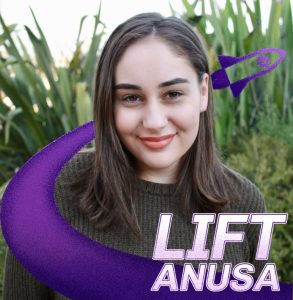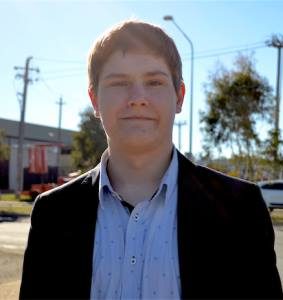Vice Presidents, Head to Head: Advocacy, Admissions, and “All-Nighter Culture”:
Content Warning: this artical contains mention of mental illness and eating disorders
Counselling Centre wait times are a perennial issue, and university academics sometimes do the wrong thing. Three candidates want to solve these issues – Tess Masters, Maddison Perkins, and Sebastian Rossi are all running for ANUSA Vice President.
The Job
The VP slot is a vital – but seldom understood or recognised – position. You’ve seen the parties, clubs, and protests, but you might not have known that ANUSA is constantly handling academic and pastoral cases from the student body. Any time a student feels they’ve been wronged by a course or the University, ANUSA will follow up their case, argue in their favour, and negotiate with the ANU bureaucracy to help them out. The Vice President is responsible for that side of the Association.The VP also supports ANUSA’s autonomous Departments, and manages the Brian Kenyon Student Space.
The Candidates

Tess Masters is running with Lift. She is currently a Senior Resident at Burton and Garran Hall – a pastoral care role – and last year was Deputy Women’s Officer. She has also been a Gender and Sexuality Advocate at B&G.

Shake Up’s Maddison Perkins is currently Chair of the ANUSA Mental Health Committee. She is also an Education Director on the Law Students’ Society. In 2016, she was an ANUSA General Representative and Regional Officer for UN Youth ACT.

Sebastian Rossi is running independently. He is currently President of the Men’s Network, a role which involves pastoral care. Rossi is also running for General Representative and NUS Delegate.
The Policies
Admissions
Shake Up says the move away from solely ATAR (Australian Tertiary Admissions Ranking) is “a unique opportunity to increase low-SES enrolments at the ANU”, as there is a “strong correlation” between ATAR score and socioeconomic status. However, more than just moving away from ATAR, the ticket wants the university to consider “accessibility of the application portal, how candidates are ‘holistically’ assessed, [and] the availability of equity scholarships”. Shake Up also wants to “audit the current scholarships” for equity, and lobby ANU to make any new scholarships equity based. It is unclear what this would mean for scholarships from private donors with non-equity scholarships in mind, similar to the Tuckwell Scholarship.
Masters and Lift promise they “will work with the university to ensure there is adequate preparation for this change”. They support ANU’s plan to admit more low-SES and regional students, but note these students are “high-risk” – referring to issues such as mental illness and homelessness. They plan to “work with the university to ensure adequate resourcing” for the Division of Student Life (DSL) to “deal with” this risk. Where this money would come from is unclear – DSL currently receives booster funding from the SSAF pool, a strategy that Lift treasurer candidate Lewis Pope has criticised. Masters says Lift’s ‘student partnerships’ policy “might” help “effect more change in resourcing”.
Rossi says he is “skeptical” of the University’s current plan, but says he agrees it could help low SES students. He thinks it will “prove difficult to be consistent and accurate” when it comes to factoring in different pressures on a student’s life.
Residential Life and Student Leaders
Lift promises to “gather data from all residents” about their time in residences. They also pledge to organise “regular public consultations” between residents and residential decision-makers, using “ANUSA’s bargaining power” to “ensure” students are listened to. Masters has been vocal in her criticism of ANU’s treatment of residential leaders such as Senior Residents. Lift has called the giving of scholarships (in lieu of wages) to SRs and others a “grey legal area”, and said the reliance on peer support places “an unfair burden on students”. They want to provide training to all students, not just residential leaders, to ease this burden, and are calling for a “review of all current peer-support programs” at the University. Masters says she still “strongly support peer mentoring and peer to peer communication”.
Perkins and Shake Up have highlighted the reluctance of student leaders to “poison” their working environment by raising concerns. They promise to “actively empower and collaborate with residential students to ensure their voices are heard, and not ignored or silenced. They have suggested hosting meetings with residential leaders “where they can anonymously voice their concerns and feedback at a university level”. Similarly to Lift, Shake Up wants to “review the current training student representatives receive”, and also provide training to all students through a “compulsory Mental Health Module on Wattle”.
Mental Health
Perkins is critical of what she calls “ANU’s all-nighter culture”, and wants to install f.lux (a program that adjusts monitor light depending on the time) on library computers and have pop-up reminders to get sleep. She also wants to “address the prevalence of eating disorders in residential halls”, involving “raising awareness, increasing support…and structural change”. Perkins plans to distinguish between events for mental wellbeing, and events looking at mental illness. “The move towards a focus on holistic wellbeing must not come at the expense of supporting students with mental illness,” Shake Up says. Perkins says another “key focus” is to “streamline policy regarding staff responses to student disclosures of mental illness”.
Rossi believes there should be more support for the Men’s Network and men’s mental health in general. At the Vice Presidents’ Roundtable, he claimed that “most students’ mental health issues are due to study stress”. To this end, he wants to provide more peer-assisted learning and “workshops on effective studying”, particularly during the week of Less Stressival. However, he later acknowledged that other factors play a role. He has proposed having an ANUSA staff member act as a liaison between students and Centrelink, to ease financial stress and because “people find it very tedious and frustrating at times”.
Masters clashed with Rossi at the Roundtable, saying she found it “hurtful” to suggest study pressures are the main reason for students’ mental ill-health. Factors such as relocation and financial strain also play significant role, she says. Regarding academic stress, Masters says, “we need to be having a conversation about mental health in CECS, in CASS, in CBE and in Chancelry all at the same time…addressing the issue in a coordinated way.” To this end, she wants to “build wellbeing into the curriculum for all undergraduate courses”, by examining assessment structures and providing training for lecturers.
International Students
All candidates have acknowledged the special barriers international students may face. Rossi believes that giving ANUSA meetings different levels of priority for Gen Reps, more international students will hold the position as they would not see it as an insurmountable time commitment. He also wants to provide “strong encouragement for clubs and societies” to include international students on their executives, through “an existing position or an international officer of sorts”. Rossi also wants a “delegate system”, wherein each ANUSA Department is assigned a Gen Rep for communication and assistance. He says having this in ISD will “help with international student representation”.
Perkins has focused on the way major crises are dealt with within international communities, saying it “unfortunately falls to leaders in those communities to deal with [them]”. She promises a “major push for crisis support” for international communities. Proposed plans include campaigning for “more multilingual counsellors” on crisis phone lines, or “creating a strong working relationships between international leaders and [DSL]”. Perkins also plans to provide mental health first aid training and suicide intervention training to “international student leaders” to help with this issue, and generally improve discourse around mental health in international communities. Finally, she promises to “advocate for a culturally and linguistically diverse counsellor” on campus.
Masters wants to run a “‘compulsory’ International Student induction at the start of each semester”. She also plans to “develop a range of infographics and videos” to communicate information about services, working with the International Students’ Department (ISD). Lift would further like to make videos “that address culture shock in particular” and look at “taboo subjects and deconstruct[ing] stigma” in conjunction with ISD, Batyr, and the Disabilities Students’ Association (DSA). They also plan to send out a pre-arrival email especially for international students.
Academic Support
Shake Up wants to ensure Course Representatives across all Colleges, and to “improve student feedback”. Perkins plans to set up “online forums where students will be able to voice anonymous concerns”.
Lift also wants all Colleges to have Course Reps, calling the approach of the Joint Colleges of Science “best practice”. They also promise to “build a course rep training module”, and have a staff member oversee this. Masters promises to ensure the Education Review currently underway “is acted upon”.
Rossi plans to push for more networking for degrees, workplace experience, and careers information. This comes from his experience in Chemistry, where he says such opportunities are “severely lacking”.
Voting for all positions is open until 4pm Thursday 24 August.









